The Medical Device Industry is experiencing rapid growth. According to Fortune Business Insights, the global Medical Device Market is anticipated to exceed $658 billion by 2028.
This extensive growth invites great opportunity for medical device startups to succeed. However, achieving success relies heavily on being able to navigate the many challenges that arise throughout the startup journey.
In 2023, 44% of startups failed because they ran out of cash. - Statistica Research
While startups navigate regulatory, compliance, and operational challenges, nothing presents an existential threat like running out of cash. Here, we unpack methods to address cash management and use them to your advantage.
Establish a Budget
Imagine trying to drive 500 miles on a single tank of gas. Even if you’re 100% electric, you must plan a few pitstops along the way. This is equivalent to the budgeting process. Effective budgeting and planning enable you to make informed, thoughtful decisions that allow you to go faster and further and plan for that next pitstop.
But if budgeting were easy everyone would do it! Establishing a budget is not the hard part. It’s the war of attrition. First, disputes over budget formation and allotment, followed by constant budget management take a social-emotional toll that taxes startups to the point of collapse. Moreover, a lack of confidence in budgetary numbers from the onset quickly erodes confidence in and adherence to it.
That’s why we recommend working with an outside advisor. A skilled advisor can see around corners to anticipate unforeseen expenses and more accurately quantify existing assumptions based on experience and knowledge of the industry.
Just as critical as getting the budget quantified correctly is the ability to qualify it to the team. It’s easy for departments to see their budget allotment as indicative of their value. Advisors can help articulate the rationale behind budgetary numbers and help get the team on board without damaging relationships or fostering resentment.
Know Your Ins and Outs
It’s tough to know when you need a pitstop if your gas gauge is broken. The same is true with budgeting. You can only manage what you know.
Therefore, outgoing expenses must be categorized and tracked in a centralized system, in near-real time. Reconciliation of bank and credit card statements should happen every week. Large expenses should be approved before they can be executed. Finally, the system should be auditable and traceable. This ensures visibility to your cash position and accountability if something goes awry.
If this sounds like a tall order for a budget-conscious startup, consider the risks of budget overruns. Spending time to invest in a sustainable financial solution will pay dividends now; not to mention help you sleep a bit better knowing how much is left in the tank. For startups, this is the choice to invest in a tier 2, ERP solution with proper controls and tracking rather than QuickBooks or Excel.
Measure Your Value
It’s been said that transparency is the currency of trust. Investors are wary of financial numbers or claims that can’t be supported with hard data.
This is especially true when working to secure funding, a pivotal step in the startup journey. Whether you’re being asked to provide regular, accurate financial statements or rationalize your company’s valuation, you need the right people, processes, and procedures to support your claims.
People
You trust your health in a doctor with credentials and experience. This is also true with financial analysis and funding requests. Expertise and experience can mean the difference in securing or losing funding.
Process
Proper procedures are the backbone of efficiency and growth-based operations. Establishing a disciplined and regular cadence for budget review and proper adherence to tracking spend is essential to managing cash and ultimately affects the viability of the company.
Technology
Investors are weary of financial statements produced in Excel or QuickBooks which can easily be tampered with. Investing early in a growth-based tool that will scale with your business will set you up for success now and in the future.
The key to overcoming these challenges lies in a startup’s ability to maintain effective financial management and implement strategies to support scalability. Though difficult to implement, these are simple, straightforward strategies to de-risk your startup and launch you on your journey to becoming a successful and sustainable company.
Want to Learn More?
SVA Consulting works with startups to provide specialized financial advisory services and implements scalable technology solutions, such as Acumatica ERP, as a systematic means to track financial data and leverage the true, scalable, enterprise resource planning platform for all future business operations.
Learn more about our ERP solutions for B2B distributors and manufacturers and how we can work together.
Join SVA Consulting at the BIOMEDevice Event in Santa Clara, CA, on November 16th to learn more about how we take a prescriptive approach to help clients transform their business systems and achieve operational excellence.

Additional Contributor: Jason Oppmann, Director of Financial Strategy and Operations for SVA Life Sciences
© 2023 SVA Consulting







